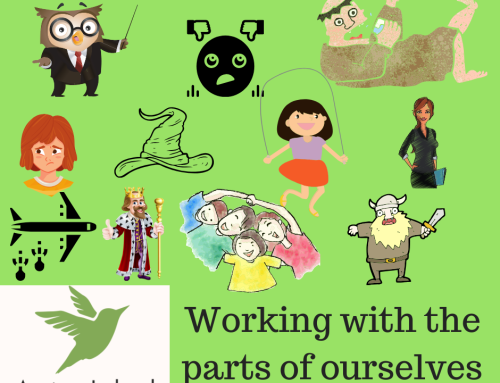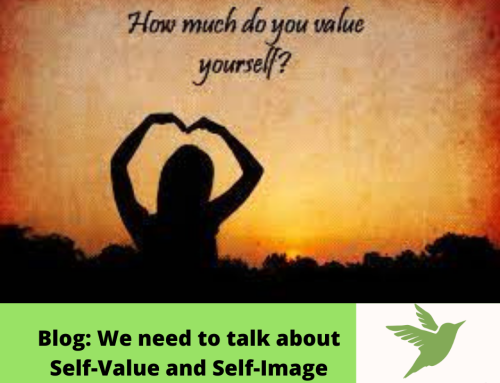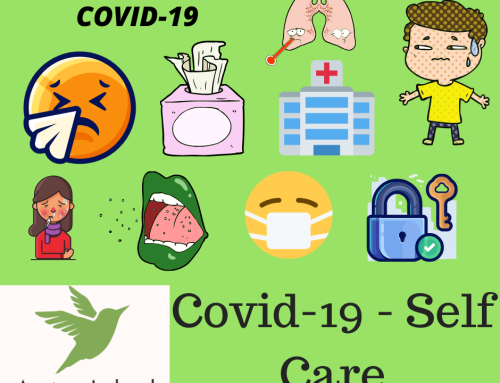Emotional baggage can mean many things, we all carry our stories and pasts with us, but when does it become a hindrance to hold onto the baggage of the past!
Someone I know was recently on a date and their date said to them “just to let you know I come with emotional baggage”. Wow I thought, that’s very honest! But then I wondered what does that mean?
Not knowing the person involved, but being a psychotherapist, I wondered do we all have emotional baggage? Do some of us have more than others? What does it mean to have too much emotional baggage and how does it impact us functionally and in relationships?
Most definitely emotions are a key part of what makes us human and emotions are a pivotal part of our response to events.
Holistically as a CBT/person centred therapist I see emotions as a pillar of what it means to be human, along with cognitions, physicality, behaviours and spirituality.
But our relationship with them can be complex.
Why do we have emotions?
It has been said that emotions are the spice of life, sometimes they are sweet, sometimes they burn and sting, other times they are bitter and sometimes sour. Many tantalize and thrill us while others deflate us. Like good flavours they can be addictive and like a drink of wine they can intoxicate us.
Yet we don’t always want to taste what’s on offer. We would literally rather swallow them down to get the flavour out of our mouths.
Emotions typically are there to serve us. They are quite social inventions. Love and happiness are emotions we share with others and bring us into connection. Anger is useful to help us to defend ourselves when wronged or when we need to defend others we care about.
Sadness can even be there to help us get support from the social group. Jealousy can help us protect what we’ve gotten and feel safer.
Shame and guilt keep us in line with the norms of the group we are in. Even these so-called negative emotions would have served us to be contrite and avoid exclusion.
Remember evolutionarily to be excluded from the group probably meant death at the hands of some animal or the elements so each of these strong emotions has a role to play for us humans.
Especially when we are infants our emotions allow us to communicate with our caregivers before language is possible. They are naturally occurring, regulate us and motivate and demotivate us accordingly.
Emotional repression:
We are evolved animals who still have a lizard brain that will keep us safe with fight or flight response and we have emotions that will roll through us and are evolutionarily programmed into us too.
The thing about human beings though is that we can cognitively evoke our own emotions when we think of things that are sad or when we perceive things as worthy of an emotional response.
We also define our own relationship with emotions and have that relationship defined culturally, by our peers, by our family and even some would say by our gender.
As a baby we are capable of a full spectrum of emotions from fear, love, anger, guilt, shame, jealousy, sadness, boredom, Hate, etc.
Yet somewhere along the line we develop an okay/not okay relationship with emotions. When we are told overtly or covertly that: “big boys don’t cry”, “don’t be angry”, “you should be ashamed of yourself”, “How could you do this to me”, You’re too much”, “be quiet”, “I could leave you at any stage”, “girls should look after their mother”, etc, we get hang ups about how we feel.
When we don’t allow for the emotions to flow and cut them off because they are not ok, we are now into emotional repression. The swallowing them down mentioned earlier or cutting off feeling – going to the head.
For some, certain emotions are even enough to start the fight or flight system because they are so forbidden and to be avoided.
This is in some ways non-natural as we constrict and hold the emotions rather than roll with them. This leads to storing them as baggage.
What is Emotional Baggage?
So, what do I think we mean by emotional baggage? When emotions in general or emotions around incidents are unexplored and/or unexpressed and follow us around life.
I guess it can take many forms but the image I’m drawn to is that of the weary baggage laden traveller who is carrying more than they need and more than then can get around with.
They are weighed down. Impeded, stuck, exerting huge energy just to get by. When some of us might have emotional baggage, it doesn’t mean we have huge bodies, but it means we spend huge energy keeping the show on the road not going into our vulnerable place.
We mightn’t always be holding the emotional baggage, but there is always the risk of the unresolved or bottled up emotions being triggered in the present at great energetic and emotional cost.
For some even the so-called positive emotions such as love, freedom and happiness be dangerous baggage making them vulnerable because to experience what they’ve always craved brings the risk of annihilation when they change or wane as they must do.
Those with emotional baggage at some level tend to know that they can’t go there or trust. The amount of times in clinic I have been told by someone that such and such happened years ago, but I have never dealt with it is flabbergasting.
Complicated grief is a common source of emotional baggage but so too can be abuses, traumas, assaults, birth traumas, break ups, parental divorce/separation, neglect, bullying and exclusions.
Another definition I heard of emotional baggage is that: if the thought of something which happened more than two years ago is still deeply upsetting and needs to be avoided then it is likely there is emotional baggage there to be worked through/processed.
We all have had issues in the past, it’s a part of being human but long term we need to live in the present, not die in the past. In the next section I want to explore some ways to lighten the load.
How to lighten the emotional baggage load:
Baggage by its nature is something we must carry with us. It weighs us down, makes us respond differently, stops us from jumping in and saying yes because “who will mind the bags/what if they open!”. It infects our sense of self and our relationships.
It has also been helpfully visualized as stuff jammed into a box or a closet until they won’t fit anymore. We can find genius ways to keep moving away from our baggage, but eventually we either get sick/ can’t run anymore and have to face it or it catches us by sheer volume.
Many people in therapy are at either end of this example, but we don’t have to wait until we are overwhelmed or smothered under the weight before we can change something.
If emotional baggage is an issue for any reader of this then here are some tips you can do to face into these issues. These tips are inspired by the 4 steps to wisdom of Anthony De Mello.
The first tip is to recognize that you have baggage there and that at least partially it’s time to stop running away from it.
Name the emotions or incident that haunt us, maybe write down what is the worst of it and what parts makes one the most vulnerable.
Secondly recognize that the only one judging us for still finding this hard is probably ourselves. No one else needs to know that we are in this place of pain, therefore the only one not giving ourselves permission is ourselves.
Give the permission to go there because although it may hurt, we will be lighter following working through it.
Thirdly, realize that emotions are temporary and are part of life. Even the most unpleasant ones that we’ve been made feel guilty over have a finite lifespan. All humans have them and they are there for a reason. It’s a bit like the bogey man, the more people talk about him and act like he’s going to get us the scarier he becomes.
Emotions can’t kill us and contained properly they don’t lead to us hurting anyone else. Emotions are like house visitors, even grief and loss. Sometimes we don’t know how long the visit is going to last but they always check out and a new guest arrives eventually.
But fearing spending time with the guests means they are never really going to leave us until they are heard, given permission and checked-out.
Fourth, don’t identify with any emotions good or bad. That with which we are identified we become. If we say we are bad we feel bad, if we say we are depressed we are depressed. Rather state that there is depression here, there is sadness here, there is guilt, vulnerability, loss etc.
Be curious about them but don’t define ourselves with what is a temporary emotion, this teaches us tolerance and that like an itch they will pass.
Fifth, realize that to change the relationship with the emotion/ shed the baggage that we must change ourselves from reacting to responding.
We can allow ourselves an hour a week to feel what was troubling us and let it in rather than bottle it up until it overwhelms us.
Instead of reacting to the emotions and pushing them away we can respond with love and empathy to ourselves that we are in pain.
We can open up to someone else about how we are feeling, getting validated in this way always helps process feelings.
Feel the fear and do it anyway but in a deliberate and kind way. Have the tissues and the ice cream ready and don’t drink or chase thrills to numb the pain
Sixth, go easy on ourselves, and be okay if it’s time to ask for more help!
If this is too much to handle alone, if the baggage is too frightening to open by ourselves. If there aren’t others to help; therapy can be a place where we can get help to be strong enough to overcome the past.
Maybe we were too small, too vulnerable, too frightened to go there before but with a good therapist it is possible to open those bags and let out the scary parts.
When we do that, we allow for so much more to come into our lives. When we drop the baggage, we become free from it’s clutches. Yes it still may hurt us from time to time but it doesn’t have the power over us anymore.
Anxiety Ireland:
We connect people to therapists all over the country and are happy to connect clients to the best therapists in their area.
Please feel free to message our page or call text me on 087 063 0948 to find out more, or to enquire on how I work with clients in Glasnevin, Dublin 11 near Phibsboro, Cabra, Finglas, Drumcondra, 15 minutes from the city centre.
Thanks for reading this post, if it was useful please like, share and comment!
Drop that baggage and feel the relief!
Warm regards,
Michael Ledden
087 063 0948
Anxiety is like a Merry-go-round, taking us nowhere, it’s okay to step off.




